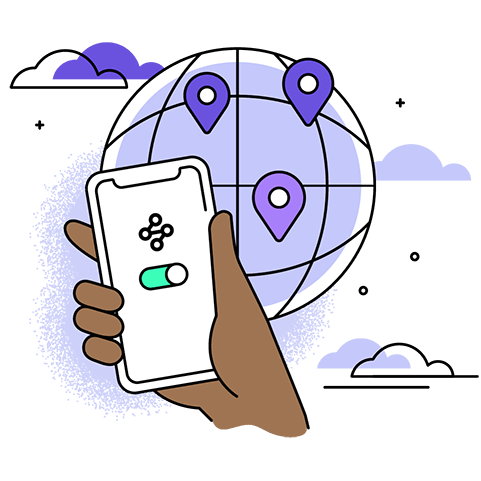A VPN (Virtual Private Network) is a piece of software that protects your online privacy by diverting your Internet traffic through an encrypted tunnel on the Internet. As more people and businesses are looking for ways to secure their information, VPNs are becoming more and more popular.
VPNs can also be used to protect public networks, change Internet addresses, and block geo-restricted material. VPNs are a great way to bypass the bandwidth throttle of ISPs and reduce lag time and ping time. People who want to save money can use VPNs to book flights at low cost or buy products and services at a lower price. This is possible due to the fact that different companies offer different prices for different places.
One of the main reasons why VPNs are so popular is their flexibility. VPNs are available for all devices including smartphones, tablets and even PCs. No matter what device you use to surf the Internet, you can still enjoy VPN security.
Not all VPNs are created equal. Some VPNs are better than others, and if you want to get that value out of VPNs, you should go for a great one. This article focuses on the big differences between a great VPN and a good one. Here we go.
Features of a Great VPN
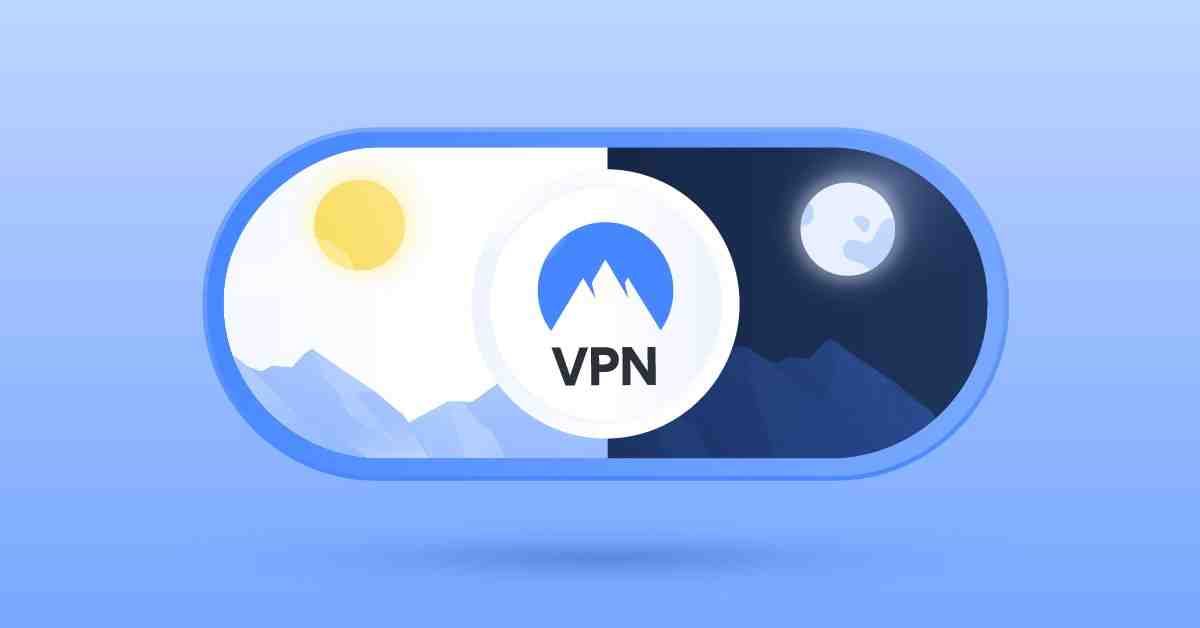
1. Public Audits
VPNs hide your internet activity from your ISP cybercriminals, your ISP or any other party interested in your information. However, the VPN provider has access to your online activities because you are redirecting your online traffic through their server. You place your trust in the VPN provider to protect your online activities and not to sell or track them.
The average user has no way of knowing what VPN company handles their data. They need to be dependent on the VPN company to inform them. SurfShark, for example, has its own audits that allow security experts to review their apps and report their findings.
VPN providers that are open to audits are highly reviewed and recommended by security experts. While only the VPN company can determine how effectively they handle user data, audits are essential for users. Public audits are more reliable than non-audit VPNs.
2. VPN Power Across Several Platforms
Another advantage of a top VPN is its compatibility across different platforms. The most popular VPN providers offer software for Windows, iOS, Android, MacOs and Linux. It is not enough to have a VPN software available for different platforms. All platforms should have an effective service.
Some VPN providers only focus on desktop apps. This means that the majority of their features are not available to mobile users. VPN providers present different challenges on each platform, but the most effective VPN services aim to offer the advanced features on all platforms.
3. Features for Everybody
The first VPNs were designed by techies who loved technical features that allowed them to choose their connection ports and the type of algorithm they used, and the list goes on. VPNs are so popular that many users do not need technical features or do not have the skills to use them.
The best VPNs need to be easy to use. For example, many VPNs have features that automatically activate the app when a user connects to an unknown or unreliable network. Split tunneling allows you to route the traffic of certain apps through your regular internet connection.
There are many VPNs that offer the same features. However, the most reliable VPNs take care of both the general public and the technologies.
4. Superb Customer Support
VPN users require help from time to time like any other product. It is crucial that VPN providers provide top quality customer service. Chatting with a live representative is one way to get technical support. But VPN providers should not just limit themselves to providing help. They should also provide how-to and informational articles that allow users to learn about the features of the software and their pace.
Sometimes a simple FAQ (Frequently Asked Questions) can help you understand various features of VPN. Good information articles require an organization to invest in resources. Companies that provide information articles are considered a priority for their clients.
5. Fast and Frequent Fixes
Not only are the top VPN services great, but they also offer constant improvement. Servers in the city and bugs and updates, and other issues can be encountered by users. These issues can be quickly resolved by the best VPN services.
You can determine how much a VPN provider cares about improving their service by examining the frequency of their updates. Regular updates show that service providers do not rest on their laurels and constantly strive to improve the user experience. Certain VPNs also listen to customer complaints and offer solutions in upcoming updates.
Free VPNs are Neither Good nor Great
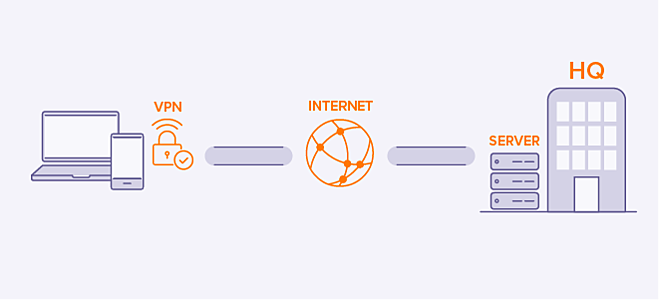
Yes, you read that right. Free VPNs are not very good or excellent. They may collect your data and sell it to third parties, which is not what you are looking for in a VPN. A free VPN service could contain annoying ads, slow internet speed bandwidth limits and weak encryption, a limited number of servers, and inadequate customer support.
VPNs that are free are not the best or are not worth it. With monthly costs of VPNs between $ 3 and $ 10, depending on the plan you provide, there are paid VPNs that fall within your budget. Some even allow month-to-month contracts to ensure that their services are more affordable.
Conclusion

As you can see, super VPNs go far beyond the call of duty to ensure that their customers get the best service. So, if you are planning to subscribe to a VPN, do not choose the best one. You deserve the top.
Which VPN is the best?
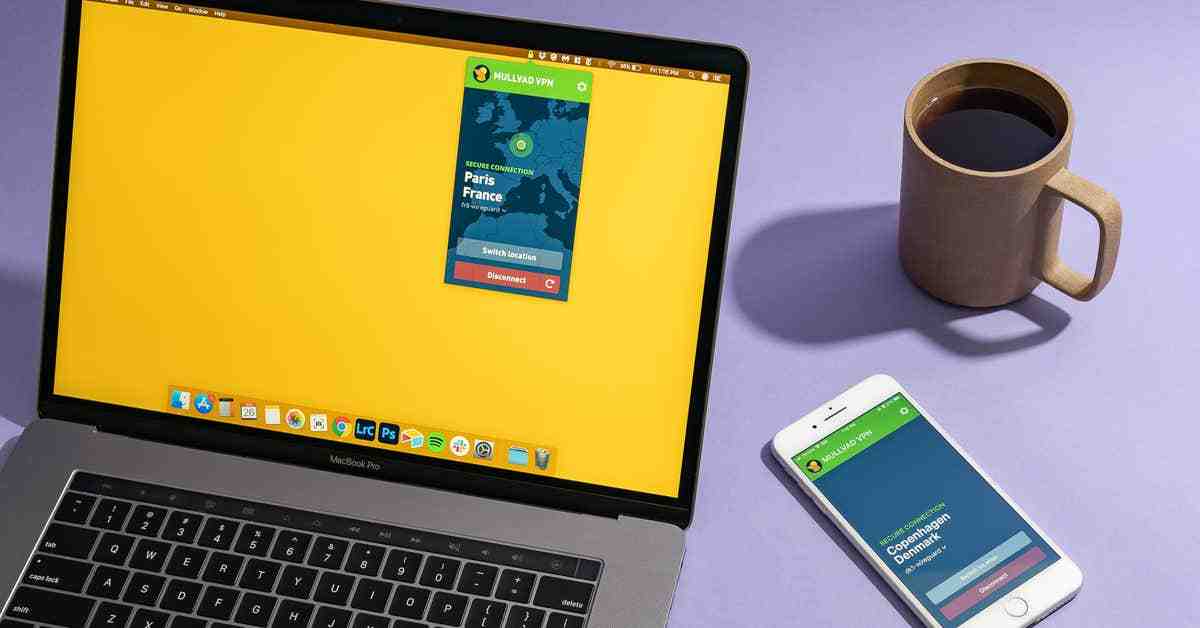
Discover the Top VPNs for 2022.
- ExpressVPN. The most reliable VPN available. …
- NordVPN. NordVPN is a highly rated VPN. …
- Surfshark. It’s affordable, but it’s as good as premium products. …
- Proton VPN. Privacy is a top choice that continues to improve. …
- Private Internet access. …
- CyberGhost. …
- Hotspot Shield. …
- Hide.me.
Which VPN country is the most reliable? Switzerland is the safest nation to connect with. Its Constitution guarantees privacy and contains strict laws and regulations for the protection of personal information.
What is the safest VPN?
NordVPN is an incredibly powerful and secure VPN. NordVPN is the most secure VPN on the market. Located in a privacy-friendly zone, it uses the latest encryption technology and security measures, and offers many additional features for secure browsing, entertainment and more.
Can any VPN be trusted?
A reliable virtual private network (VPN) can allow you to surf the Internet securely. VPN security protects you from IP and secures your online history. It is increasingly used to block snooping by government agencies. VPNs cannot guarantee your security in all circumstances.
What is the safest VPN service?
All top services use at least AES-256 encryption and have an extensive range of protocols. WireGuard is fast becoming the industry standard due to its strong security and excellent speed, and some providers like ExpressVPN have developed their own protocols, but many users remain openVPN for its proven reliability.
Can hackers hack VPN?
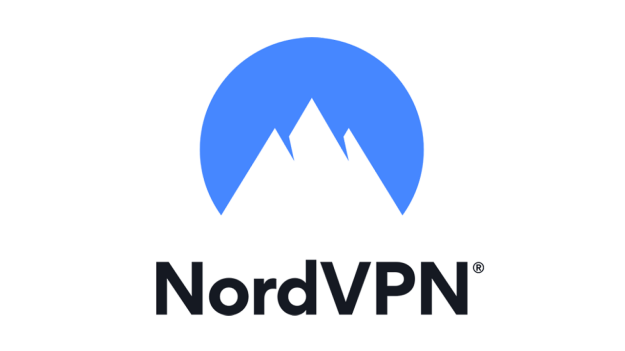
A compromised VPN can allow hackers to gain access to your devices and gain control over them with ransomware or spyware. Your VPN login information is being leaked. If your VPN security is compromised, anyone who listens to your connection can see your traffic and personal information.
Is your data stolen by a VPN? VPNs can infect your computer with malware and install hidden tracking libraries on it. They can also steal your personal information, disclose your data to third parties and even use bandwidth to steal your information.
Is it safe to bank online with a VPN?
Is it safer to do online banking with VPN? Online banking with a VPN is more secure than without it. A virtual private network does not compromise your information, it protects you when you bank over public Wi-Fi or over an Internet connection at home. Encryption is generally the most important feature of VPNs. VPN.
Is VPN good for online banking?
Since your data is secure online banking is secure. Instead of connecting directly via public Wi-Fi, the VPN allows you to connect to the Internet through an encrypted tunnel.
Is VPN safe for online transaction?
Without a VPN, hackers can gain access to your banking transactions and other information, such as your name, banking information and other information, and use it to steal your identity or steal money. Your transactions are protected from scrutiny when using a VPN.
Can your bank account be hacked using VPN?
While VPNs help VPNs to protect your privacy, it can not guarantee that you will not be compromised. When doing online banking (whether you have a VPN or not) make sure you use a secure password and practice good internet security habits.
What VPN has been hacked?
The hack only affected one VPN server in Finland, explains NordVPN. Its own servers were not compromised. NordVPN claims that the incident was caused by a bad configuration of a data center by a third party. We were never informed.
Has ExpressVPN ever been compromised? Has ExpressVPN ever been hacked? ExpressVPN servers have not been compromised so far, and it is highly unlikely to happen in the near future. Hackers do not have the ability to find vulnerabilities in the VPN client because it combines various security features.
Has Nord ever been hacked?
NordVPN is a virtual private network provider that claims to protect your privacy online, has confirmed that it has been hacked. The announcement follows rumors that the company has been compromised.
When did Nord get hacked?
NordVPN has confirmed that the server in question was made available on January 31, 2018. The company proposes that the attack took place around March 5, 2018.
Can you get hacked through NordVPN?
Premium VPNs offer top quality security, but a VPN app can still be hackable. Hackers can gain access to your VPN application if you have set a weak password, been the victim of a spyware attack, or stored your personal information in an insecure place.
Can you be hacked using a VPN?
Their success is due to a combination of technological tricks, computing power, fraud, and court decisions. VPNs can be hacked, but it is not easy to do. In addition, the chances of being hacked without VPN are significantly greater than being hacked with one.
Will a VPN keep me from being hacked?
In short, it is a fact that a virtual private network (VPN) can protect you from hackers in specific situations. A VPN cannot protect you from malware installation or click on malicious links. However, it can protect your computer from various hacking techniques.
What are the dangers of using VPN?
Why VPN is not secure. VPNs are insecure because they expose entire networks to threats like malware, DDoS attacks and spoofing attacks. The entire network can be destroyed in the event of an attacker breaking through a compromised device.
Has Netflix blocked VPN?
Netflix has blocked access to all IP addresses of data centers since the August 2021 VPN ban. Simply put, you can only access Netflix if your IP address seems to come from an ISP. If it is obvious that you are connected to a VPN with an IP address for a data center, then you are blocked from streaming Netflix.
Is Netflix allowed to ban VPN usage? Netflix does not prohibit VPN use. This is the simple answer to the Netflix VPN ban request.
How do I bypass Netflix restrictions?
A Virtual Private Network (VPN) is the most effective way to change the region of Netflix. A VPN connects your internet traffic through an intermediate station server in the country of your choice. It will disguise your current IP address and replace it with one from your chosen country, thus spoofing your current location.
Does VPN protect from hackers?
What is a VPN to prevent hacking attacks? It hides your IP address and redirects your internet traffic to make it impossible for you to track you. It also encrypts the information you provide over the internet to block anyone from reading it.
What can VPN not protect you? VPNs are not the same as the most comprehensive anti-virus software. VPNs cannot secure your IP or encrypt your web history. They do not protect you when you visit phishing websites or download compromised files.
Is having a VPN good?
Using a secure virtual private network (VPN) can be a safe way to surf the Internet. VPN security can protect IP and encrypt your Internet history. It is increasingly being used by government agencies to block spies.
Is it worth investing in a VPN at home? VPN is highly recommended, especially for sensitive data. It should be at all times to protect yourself from data breaches, hackers and leaks, as well as intrusive snoopers like ISPs and advertisers. VPNs secure your data and protect your privacy from third parties and cybercriminals.
Why you shouldn’t use a VPN?
VPNs are not able to magically secure your data – it is not technically feasible. If the endpoint expects clear text, then you can do nothing about it. When you use the VPN, the only part that is encrypted by the connection is that of you to the VPN provider.
Can using a VPN get you in trouble?
Depending on where you are, you may have trouble using VPNs. VPNs are legal in the US. You are not reproached for using them. If you are one of the countries that bans VPNs like China, then yes, you can get in trouble for using them.
Is it worth having a VPN?
The short answer is yes. A VPN is a great investment, especially if you are concerned about your online privacy and security when surfing the Internet. VPNs, also known as virtual private networks, establish a private network for their computer when connected to a public Internet connection.
Is it worth using a free VPN?
Free VPNs are not the best choice for those who want more secure online. Even if you save a few dollars every month, the risk to your privacy and personal data is too high. A free VPN could cost you more than a premium subscription.
Is there a downside to using a VPN?
A VPN service can also have its drawbacks. Performance, speed and price. Good encryption always leads to the possibility of delay. Because of the processing power required to encode data VPNs, a VPN service can slow down your Internet connections.
Sources :
